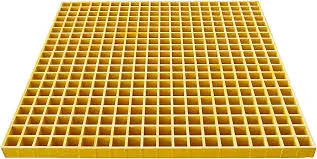
-
 Afrikaans
Afrikaans -
 Albanian
Albanian -
 Amharic
Amharic -
 Arabic
Arabic -
 Armenian
Armenian -
 Azerbaijani
Azerbaijani -
 Basque
Basque -
 Belarusian
Belarusian -
 Bengali
Bengali -
 Bosnian
Bosnian -
 Bulgarian
Bulgarian -
 Catalan
Catalan -
 Cebuano
Cebuano -
 China
China -
 China (Taiwan)
China (Taiwan) -
 Corsican
Corsican -
 Croatian
Croatian -
 Czech
Czech -
 Danish
Danish -
 Dutch
Dutch -
 English
English -
 Esperanto
Esperanto -
 Estonian
Estonian -
 Finnish
Finnish -
 French
French -
 Frisian
Frisian -
 Galician
Galician -
 Georgian
Georgian -
 German
German -
 Greek
Greek -
 Gujarati
Gujarati -
 Haitian Creole
Haitian Creole -
 hausa
hausa -
 hawaiian
hawaiian -
 Hebrew
Hebrew -
 Hindi
Hindi -
 Miao
Miao -
 Hungarian
Hungarian -
 Icelandic
Icelandic -
 igbo
igbo -
 Indonesian
Indonesian -
 irish
irish -
 Italian
Italian -
 Japanese
Japanese -
 Javanese
Javanese -
 Kannada
Kannada -
 kazakh
kazakh -
 Khmer
Khmer -
 Rwandese
Rwandese -
 Korean
Korean -
 Kurdish
Kurdish -
 Kyrgyz
Kyrgyz -
 Lao
Lao -
 Latin
Latin -
 Latvian
Latvian -
 Lithuanian
Lithuanian -
 Luxembourgish
Luxembourgish -
 Macedonian
Macedonian -
 Malgashi
Malgashi -
 Malay
Malay -
 Malayalam
Malayalam -
 Maltese
Maltese -
 Maori
Maori -
 Marathi
Marathi -
 Mongolian
Mongolian -
 Myanmar
Myanmar -
 Nepali
Nepali -
 Norwegian
Norwegian -
 Norwegian
Norwegian -
 Occitan
Occitan -
 Pashto
Pashto -
 Persian
Persian -
 Polish
Polish -
 Portuguese
Portuguese -
 Punjabi
Punjabi -
 Romanian
Romanian -
 Russian
Russian -
 Samoan
Samoan -
 Scottish Gaelic
Scottish Gaelic -
 Serbian
Serbian -
 Sesotho
Sesotho -
 Shona
Shona -
 Sindhi
Sindhi -
 Sinhala
Sinhala -
 Slovak
Slovak -
 Slovenian
Slovenian -
 Somali
Somali -
 Spanish
Spanish -
 Sundanese
Sundanese -
 Swahili
Swahili -
 Swedish
Swedish -
 Tagalog
Tagalog -
 Tajik
Tajik -
 Tamil
Tamil -
 Tatar
Tatar -
 Telugu
Telugu -
 Thai
Thai -
 Turkish
Turkish -
 Turkmen
Turkmen -
 Ukrainian
Ukrainian -
 Urdu
Urdu -
 Uighur
Uighur -
 Uzbek
Uzbek -
 Vietnamese
Vietnamese -
 Welsh
Welsh -
 Bantu
Bantu -
 Yiddish
Yiddish -
 Yoruba
Yoruba -
 Zulu
Zulu
Exploring the Benefits of Fiberglass Boats for Recreational Water Activities and Adventures
Exploring the World of Fiberglass Boats
Fiberglass boats have revolutionized the maritime industry since their introduction in the mid-20th century. Combining durability, lightweight design, and relatively low manufacturing costs, these vessels have become a popular choice for recreational boaters and commercial users alike. In this article, we will explore the advantages of fiberglass boats, their maintenance, and their impact on boating culture.
One of the primary advantages of fiberglass boats is their resilience. Unlike wooden boats, which are susceptible to rotting and other forms of decay, fiberglass is inherently resistant to environmental damage. This resistance to water, UV rays, and the elements ensures that fiberglass boats maintain their integrity much longer than traditional materials. As a result, boat owners often find that their fiberglass vessels require less frequent maintenance in terms of repairs or replacements.
Moreover, the manufacturing process for fiberglass boats allows for a wide variety of designs and styles. The material can be easily molded into complex shapes, enabling boat builders to craft sleek and modern appearances. This versatility appeals to a broad spectrum of boat enthusiasts, from those seeking high-performance speedboats to families looking for spacious day cruisers. The lightweight nature of fiberglass also contributes to improved fuel efficiency and ease of transportation, making these boats practical for various purposes.
fiberglass boat

Fiberglass boats are not only popular among recreational users but also play a crucial role in commercial applications. Their durability makes them ideal for fishing vessels, tour boats, and rescue operations. Many commercial operators favor fiberglass boats because they can withstand the rigors of daily use while requiring minimal upkeep. Additionally, the cost-effectiveness of fiberglass manufacturing reduces the initial investment, allowing businesses to allocate resources more effectively.
While the advantages of fiberglass boats are many, maintenance should not be overlooked. Regular upkeep is essential to ensure their longevity. Owners should routinely clean the hull, check for any signs of wear or damage, and apply protective coatings to shield against UV rays. Though fiberglass is resistant to many forms of damage, it is not completely impervious. Scratches and cracks can occur and should be repaired promptly to prevent water intrusion and further degradation.
In recent years, environmental considerations have prompted discussions about the sustainability of fiberglass boats. Traditional fiberglass is made from petroleum-based products, raising concerns about its ecological footprint. However, manufacturers are actively pursuing eco-friendly alternatives, such as bio-resins and recyclable materials, in an effort to make fiberglass boats more sustainable. As boating continues to grow in popularity, the marine industry is tasked with finding innovative solutions that balance performance with environmental responsibility.
In conclusion, fiberglass boats have made a significant mark on the boating world due to their durability, design versatility, and cost-effectiveness. While they do require regular maintenance, their resilience makes them a practical choice for both recreational and commercial users. As the industry moves toward more sustainable practices, the future of fiberglass boating looks promising. Whether you are an experienced sailor or a newcomer to the water, fiberglass boats offer a reliable and enjoyable way to explore the beauty of our oceans, lakes, and rivers. With advancements in technology and materials, these vessels will continue to thrive and adapt, ensuring that they remain a staple in the world of boating for years to come.









